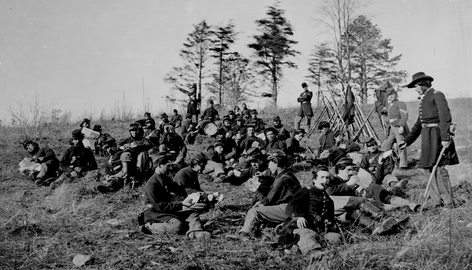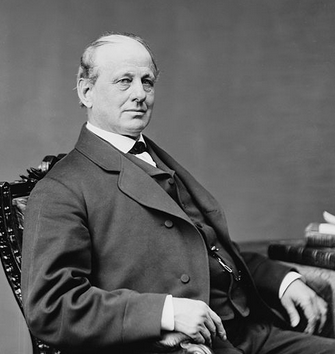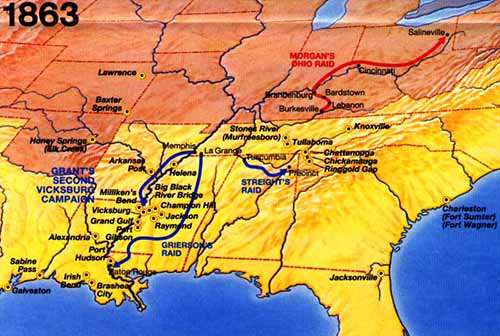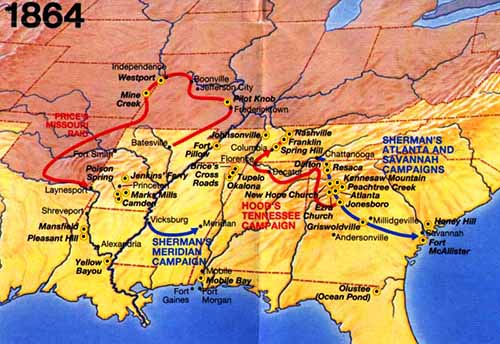
(Union troops at ease, reading letters and smoking in the field. Image USG).
James Foley was as excitable an Irishman as you can imagine- which is to say, he was a sort of passive-aggressive approach to events that were far larger than any individual, and a determined insistence on doing things his way.
He had emigrated from the green rolling hills of County Galway in the late 1840s, and followed the rails west as they opened the vast and fertile Ohio Territory. Admitted to the Union in 1803, Ohio symbolized the connection of the original colonies spilling over the mountains to the west, and connecting to the vast riverine network that drove expansion to the south to the Gulf and north into the Dakotas.
I was perhaps a little unkind to grandfather’s memory when I noted his decision to absent himself from the 72nd. A combat vet and shipmate wrote me to not be so judgmental. My pal understands a little about the nature of war and love- and he said it this way:
“If I may, don’t be to hard on Grandfather James, and this is from someone who’s been there. I met my bride in Hawaii for R&R in March 1970. I flew in with my pilot from Duc Hoa. He was meeting his wife, too, and we four did all the things associated with I&I. On the last morning, I left a tearful wife at Fort DeRussy to get the plane back to VN, it was the hardest thing I have ever done. I was scared but the futility of what we were doing is what nagged at me. I can only imagine what it must have been like in 1864 for a newly married immigrant; he did his part.”
I had to agree, and I am not sure that I would not have done the same thing that my GG Grandfather did. The other thing I noted after walking the field at Raymond, MS, was to realize what was expected of infantry in the days before vehicles. They literally walked all over the upper and lower South in that lesser known part of the Civil War.
Since James did not write to us here in his future, not knowing that his present would be of interest as our past, I have to look at his service through the lens of his unit. They kept impeccable records.
With the onset of the War, the 72nd Ohio Infantry was organized in Freemont, Ohio, in October1861. The process lasted through February 1862, with private soldiers mustered in for three years service under the command of Colonel Ralph Pomeroy Buckland. The Colonel had something in common with Patrick Griffin’s God’s Own Gentleman, Lt. Col. Randall McGavock, who had been mayor of Nashville.

(Colonel Ralph Pomeroy Buckland, as a brevet Major General and Member of Congress. Image Library of Congress).
Buckland was mayor of Freemont, 1843 to 1845, and was a delegate to the Whig National Convention in 1848. He set his sights on state politics and served as a member of the Ohio Senate between 1855 and ’59.
Buckland entered the Union Army as Colonel of the 72nd Ohio Volunteer Infantry on January 10, 1862. Buckland also commanded the Fourth Brigade of the First Division of the Tennessee Army under William Tecumseh Sherman in the 5th Division of the Army of the Tennessee for the battle of Shiloh. For his sustained performance, he was promoted to the rank of brigadier general of Volunteers on November 29, 1862. During the spring and early summer of 1863, Buckland commanded a brigade in Sherman’s XV Corps in the siege of Vicksburg.
Like great-great grandfather, he tired of the war. Buckland resigned from the army January 6, 1865, and returned to Ohio after winning a seat in the US Congress. In the omnibus promotions following the surrender of the Confederate armies, he was given a brevetted promotion to Major General, with a date of rank of March 13, 1865.
So, that was Colonel Buckland’s war in brief. I have nothing like that for grandfather, except that he was a teamster and hence, a logistics specialist with a rifle. That has been a tradition in the family that went down through James’ son Pop to my actual grandfather Mike, who drove trains for the AEF in France in 1918.
But let’s stay focused. The canvas of the war in the West is a vast one, and follows the rivers and the rails: the 72nd OVI was attached to District of Paducah, Kentucky, to March 1862. Here is where they marched in the heat of the Southland:
1862:
Moved to Camp Chase, Ohio, January 24, then to Paducah, Ky.
Moved from Paducah, Ky., to Savannah, Tenn., March 6–10, 1862.
Expedition from Savannah to Yellow Creek, Miss., and occupation of Pittsburg Landing, Tenn., March 14–17.
Crump’s Landing April 4.
Battle of Shiloh April 6–7.
Advance on and siege of Corinth, Miss., April 29-May 30.
Russell House, near Corinth, May 17.
March to Memphis, Tenn., via La-Grange, Grand Junction, and Holly Springs June 1-July 21.
Duty at Memphis, Tenn., until November.
Grant’s Central Mississippi Campaign, operations on the Mississippi Central Railroad, November 2, 1862 to January 12, 1863.
1863:

Duty at White’s Station until March 13. Ordered to Memphis, Tenn., then to Young’s Point, La.
Operations against Vicksburg, Miss., April 2-July 4. Moved to join army in rear of Vicksburg, Miss., May 2–14.
Mississippi Springs May 13.
Jackson, Miss., May 14.
Siege of Vicksburg May 18-July 4.
Assaults on Vicksburg May 19 and 22.
Expedition to Mechanicsburg May 26-June 4.
Advance on Jackson, Miss., July 5–10.
Siege of Jackson July 10–17.
Brandon Station July 19.
Camp at Big Black until November.
Expedition to Canton October 13–20.
Bogue Chitto Creek October 17.
Ordered to Memphis, Tenn., and guard Memphis & Charleston Railroad at Germantown until January 1864.
1864:

Expedition to Wyatt’s, Miss., February 6–18.
Coldwater Ferry February 8.
Near Senatobia February 8–9.
Wyatt’s, Miss., February.
Operations against Nathan Bedford Forrest in western Tennessee and Kentucky March 16-April 14.
Defense of Paducah, Ky., April 14.
Sturgis’ Expedition to Ripley, Miss., April 30-May 2.
Sturgis’ Expedition to Guntown, Miss., June 1–13.
Brice’s Cross Roads, near Guntown, June 10.
Salem June 11.
Smith’s Expedition to Tupelo, Miss., July 5–21.
Camargo’s Cross Roads, Harrisburg, July 13.
Harrisburg, near Tupelo, July 14–15.
Old Town or Tishamingo Creek July 15.
Smith’s Expedition to Oxford, Miss., August 1–30.
Abbeville August 23.
Moved to Duvall’s Bluff, Ark., September 1.
March through Arkansas and Missouri in pursuit of General Sterling Price September 17-November 16.
Moved to Nashville, Tenn., November 21-December 1. James would have been required to re-enlist after his initial three-year obligation expired in October, which came with half his $800 dollar bonus and thirty days furlough. Since his future wife Honora, sister of Patrick Griffin, lived in Nashville, I suspect this is when he made his decision to stay home and see the elephant no more.
The 72nd went on without him:
Reconnaissance from Nashville December 6.
Battle of Nashville December 15–16.
Pursuit of Hood to the Tennessee River December 17–28.
1865:
At Eastport, Miss., until February 1865.
Moved to New Orleans, La., February 9–22.
Campaign against Mobile, Ala., and its defenses March 17-April 12.
Siege of Spanish Fort and Fort Blakely March 26-April 8.
Assault and capture of Fort Blakely April 9.
Occupation of Mobile April 12.
March to Montgomery April 13–25, and duty there until May 10.
Moved to Meridian, Miss., and duty there until September.
The 72nd Ohio Infantry mustered out of service at Vicksburg, Miss., on September 11, 1865. The war was over, and the Reconstruction began.
We will take that as the framework on which to hang the story of a bluff young Irishman in the biggest fight of his generation. We will see where it goes. On the upside, James was a teamster, and someone had to ride in the wagon, you know? How else would the horses know where to go?
Copyright 2015 Vic Socotra
www.vicsocotra.com
Twitter: @jayare303
